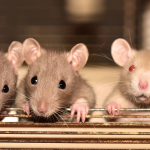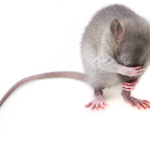For the reduction and eventual elimination of animal testing, change is in the air. And it could occur faster than many previously believed. It appears that more powerful voices are joining the choir.
animal testing
It is widely accepted that animal testing is the gold standard in biological research. The facts debunk this belief. There are many reasons to object to animal testing, but the simple truth is that there is a better way.
Plants produce pesticides to keep insects and other herbivores away. When we eat fruits and vegetables, we eat those pesticides, too. In fact, nearly all of the pesticides we consume in our diet are produced by the plants themselves.
Executive Summary
Laboratory animals have been used for many years to determine whether chemicals in foods, pharmaceuticals, and other products might cause cancer and other health problems in human beings; and animal testing continues to play a role in determining the safety of products for human use. Yet an increasingly sophisticated understanding of cancer formation (carcinogenesis) along with growing doubts about how confidently we can infer human health effects from test results in quite different animal species has begun to change both scientific assessment practices and the legal and regulatory requirements based on them.
Branding a substance a human carcinogen solely because cancer has occurred in laboratory animals force-fed the substance at unrealistically high doses diverts both attention and resources from far more significant threats to human health. So states a panel of experts affiliated with the American Council on Science and Health (ACSH).


